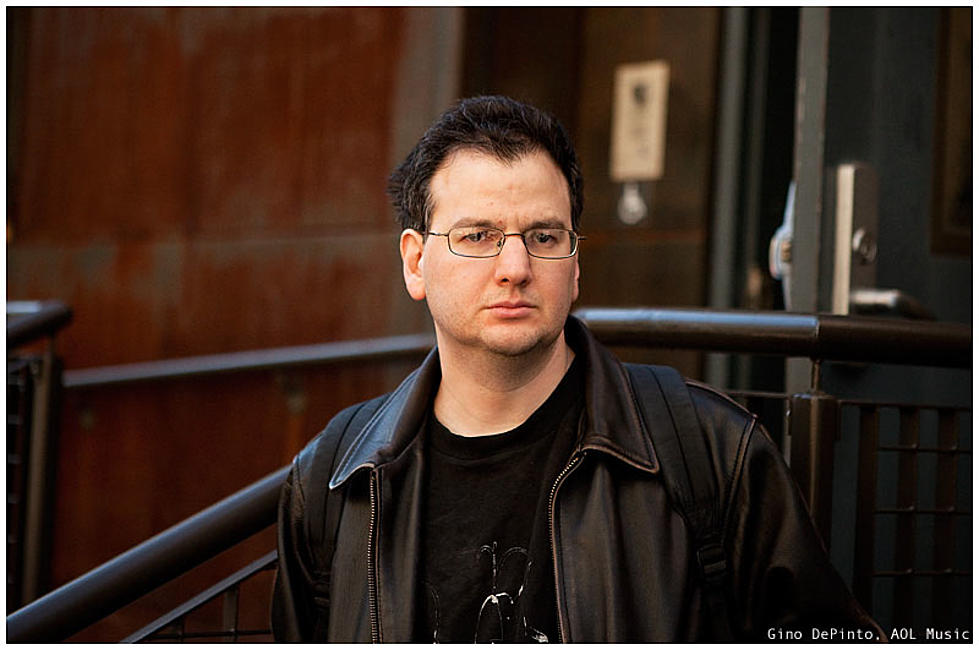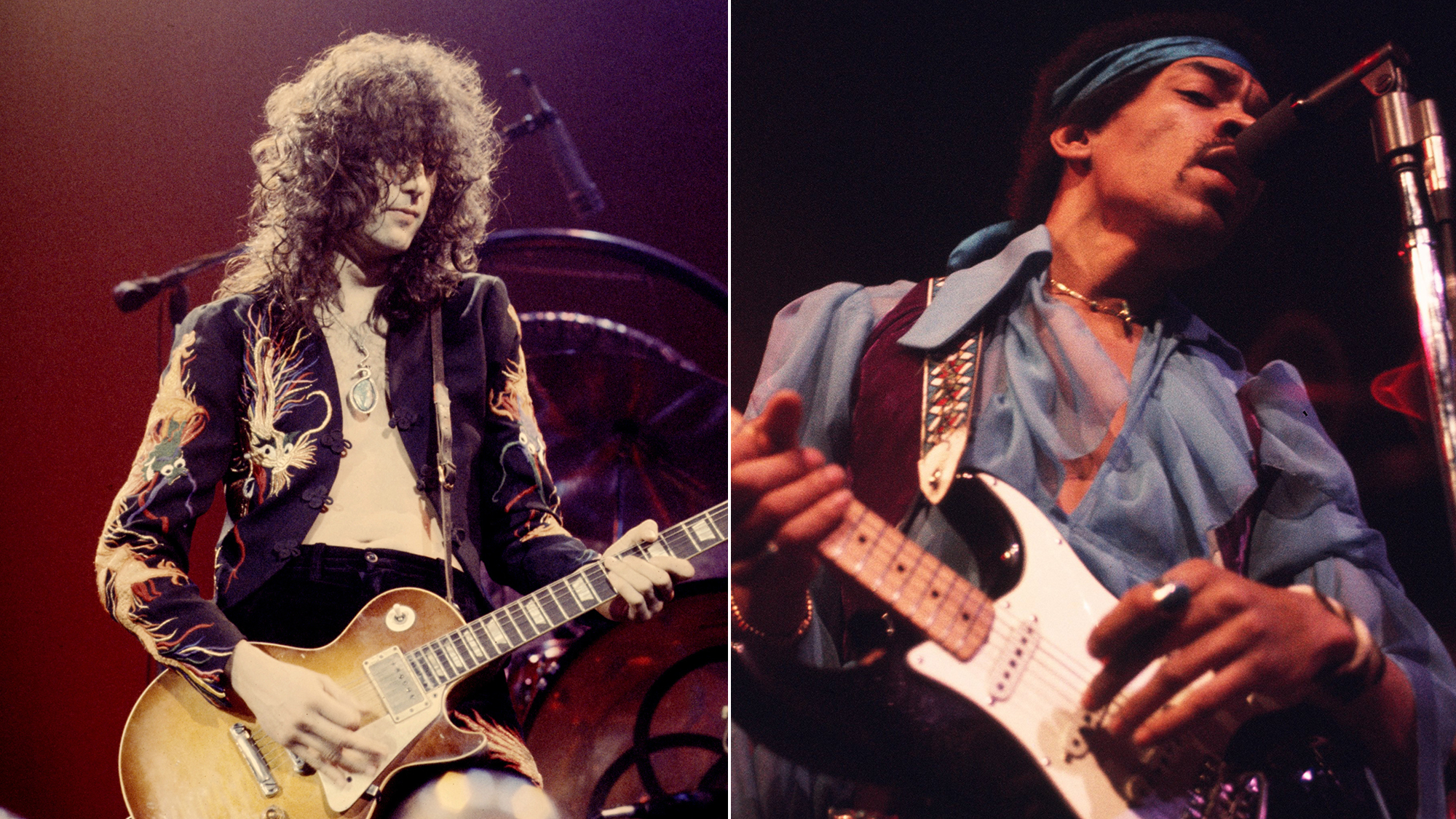Halestorm: “Everybody was just on 11, pushing ourselves and playing these parts as if the world was never going to get back to any semblance of normalcy”
Lzzy Hale and Joe Hottinger on how dialing up the volume for the hard-rock therapeutical Back from the Dead roused them from pandemic inertia and restored their equilibrium

They’ve always looked confident and comfortable onstage, but no one would call Lzzy Hale or any of her Halestorm bandmates ego-fueled rock stars. They’re pretty much the opposite – ever-friendly, self-deprecating, in awe of their heroes, and quick to praise others, even their opening bands.
“We’re really excited because we’re taking out this young band from Mexico called the Warning, and I’m looking forward to seeing them every night and being inspired by them,” Hale says with tangible enthusiasm even before bringing up Halestorm’s new album, Back from the Dead.
“There are three sisters in the band. They totally shred and they’re all under 21. We’re like, ‘Okay, we gotta step it up ‘cause we’re not the young guns anymore. The kids are alright!’”
And so are Halestorm. It just took a little while. During the Covid lockdown, Hale, guitarist Joe Hottinger and their bandmates weren’t alright at all.
Having spent the last 25 years honing her craft and finding her legs on the road, Hale became most comfortable traveling the world, meeting fans and rocking the stage with a vengeance. Being stuck at home for so long without an audience to entertain was unnerving and deflating.
“Throughout our career, we had always had a mission, something to aspire to,” she says. “And when there was no touring and no seeing other people or rising to a different level it felt like there was no forward momentum. Suddenly we were just... still.”
“After a while, we went, ‘Are we ever going to play again?’” adds Hottinger, who joined Halestorm in 2003 and is on all five of their albums. “We literally had the conversation: Do I even like music anymore? It sounds insane now, but we hadn’t played for nine months and it was like going through withdrawal. My drug of choice is a rock show, and at that point we were dry for 10 months, which was making us crazy.”
Get The Pick Newsletter
All the latest guitar news, interviews, lessons, reviews, deals and more, direct to your inbox!
Hale, who suffered panic attacks in high school, went from anxious to depressed. She struggled to find purpose, barely touched her guitar and spent day after day on the couch.
I was looking at myself and saying, ‘You’re no longer the onstage Lzzy Hale. Now you’re Elizabeth Hale who has been in her pajamas for three days doing nothing’
Lzzy Hale
“I had a bit of an identity crisis,” she says. “The band has always been an extension of myself, and I always had this armor on, which protected the normal me and allowed me to become the person, this rock performer I always wanted to be. Suddenly, I’m looking at myself and saying, ‘You’re no longer the onstage Lzzy Hale. Now you’re Elizabeth Hale who has been in her pajamas for three days doing nothing.’”
Gradually, frustration mounted into low-key panic attacks. After a few miserable weeks, Hale decided to try to cope with her declining mental health the same way she did in high school: Get off the couch, write some songs and dream of rocking the planet. Halestorm had a handful of demos they had worked on before the pandemic.
Hale and Hottinger gave them a quick workout, but they didn’t compliment the angsty, agitated zeitgeist of 2020. So they started over. They grabbed their Gibsons, plugged in and soon wrote the title track, Back from the Dead. Fueled by a crunchy, blues-inflected main riff and propelled by a sing-along chorus, the song was the blasting powder that stirred Halestorm from their inertia.
“After we played it, I said to the guys, ‘This is exactly right. This song perfectly captures this moment!’” Hale says. “We were very much in the here and now, writing for ourselves because we had to stay sane. There were no crowds. It was exactly what we needed.”
The rest of the album followed along the same lines. Most of the songs were angry, melodic, cathartic and colored with experimentation. Instead of tracking the drums and guitars before recording vocals, Halestorm recorded lead vocals along with the scratch tracks and then built the rest of the song around Hale’s voice.
We were very much in the here and now, writing for ourselves because we had to stay sane
Lzzy Hale
“I love guitar, but I’m a singer, too,” she says. “So it was cool to make all the guitar parts work with the vocals instead of the other way around.”
“It was actually a bit of a relief for me,” Hottinger says. “We already knew where all the melodies and harmonies were, so it was easier to figure out where to add candy or the different twinkly bits on top.

Not everything on Back from the Dead is fierce and defiant. In addition to the inescapable hooks that mollify even the heaviest songs, Halestorm tweak the emotions with the acoustic, classic rock lines, aching strings and harmonized vocals of Terrible Things, a ballad about hope in the face of desperation.
Then there’s the staccato main riff of My Redemption and the electronic clatter and motorcycle guitars of Bombshell. But the most unexpected moment is Raise Your Horns, in which Halestorm turn what could have been a storming headbanger into a stirring piano ballad.
We felt so helpless in real life, and this gave us a bit of control over the moment
Lzzy Hale
“We were totally happy making up the rules and surprising ourselves because there was no one else to do it for,” Hale says. “Everybody was just on 11, pushing ourselves and playing these parts as if the world was never going to get back to any semblance of normalcy.
“We felt so helpless in real life, and this gave us a bit of control over the moment, which we needed because everything else was so fucking out of whack. And it really turned out to be the silver lining of a really terrible time.”
- Back from the Dead is out now via Atlantic.
Jon is an author, journalist, and podcaster who recently wrote and hosted the first 12-episode season of the acclaimed Backstaged: The Devil in Metal, an exclusive from Diversion Podcasts/iHeart. He is also the primary author of the popular Louder Than Hell: The Definitive Oral History of Metal and the sole author of Raising Hell: Backstage Tales From the Lives of Metal Legends. In addition, he co-wrote I'm the Man: The Story of That Guy From Anthrax (with Scott Ian), Ministry: The Lost Gospels According to Al Jourgensen (with Al Jourgensen), and My Riot: Agnostic Front, Grit, Guts & Glory (with Roger Miret). Wiederhorn has worked on staff as an associate editor for Rolling Stone, Executive Editor of Guitar Magazine, and senior writer for MTV News. His work has also appeared in Spin, Entertainment Weekly, Yahoo.com, Revolver, Inked, Loudwire.com and other publications and websites.
“I said, ‘Let’s get Hendrix to play on it.’ His manager said, ‘Jimi’s playing shows back-to-back.’ So we got Jimmy Page”: The hit ’60s single that was supposed to feature Jimi Hendrix… but ended up with Jimmy Page
“It was tour, tour, tour. I had this moment where I was like, ‘What do I even want out of music?’”: Yvette Young’s fretboard wizardry was a wake-up call for modern guitar playing – but with her latest pivot, she’s making music to help emo kids go to sleep









![John Mayer and Bob Weir [left] of Dead & Company photographed against a grey background. Mayer wears a blue overshirt and has his signature Silver Sky on his shoulder. Weir wears grey and a bolo tie.](https://cdn.mos.cms.futurecdn.net/C6niSAybzVCHoYcpJ8ZZgE.jpg)

